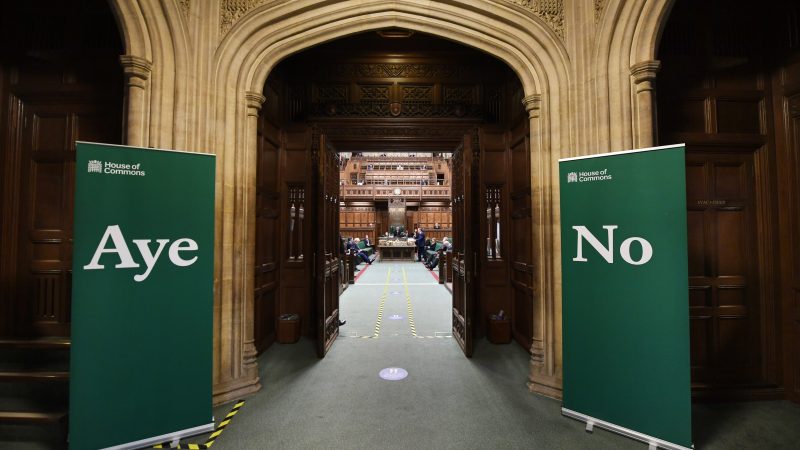
The health and social care levy, which will see National Insurance contributions increase by 1.25 percentage points to fund the NHS and changes to the social care system, has completed all legislative stages in the Commons.
Commenting on the bill at its third reading this evening, shortly before MPs backed the levy by 307 votes to 251, shadow minister James Murray said the legislation “contains nothing at all about a plan to fix social care”.
“It does not even contain a mention or a reference of a plan, and it fails to guarantee that a penny of this new levy will ever go towards the social care sector,” he said.
Boris Johnson announced his social care plan last week, which involves raising £12bn a year largely funded through an the increase in National Insurance contributions. The government has said the cash will be used to tackle the healthcare backlog caused by the pandemic before the rest is directed towards the social care sector.
Ministers, and Johnson when challenged by Keir Starmer during Prime Minister’s Questions last week, have been unable to say how long it will take the health service to get through the Covid backlog in care but it is expected to take several years.
“The Prime Minister and Chancellor are desperate to pretend that this is the only way to raise money. That simply is not true,” Murray told parliament this evening.
“A fairer approach to funding the NHS, social care and all our public services would see those with the broadest shoulders, including those with income from large financial assets, multiple rental properties and other income from wealth, contributing more. Yet the government has refused to consider these options and would prefer to hit workers instead.”
MPs in the Commons backed the government’s ways and means resolution in relation to the levy last week, by 319 to 248 votes. These are used to give consent to parts of a bill that will involve taxes or other charges to be made on the public.
The social care levy proceeded through all remaining legislative stages in the Commons today. Labour voted against the bill at its second reading this afternoon as well, but the legislation passed that stage by 317 votes to 256.
Starmer also used PMQs last week to ask whether Johnson stood by his promise, made during the 2019 general election campaign, that nobody would have to sell their homes to pay for care under the proposals. Johnson refused to answer.
The Labour leader has criticised the government for “hammering working people” and highlighted the Universal Credit cut, which is due to take effect from October 6th, describing the policies as a “double whammy” for households on low incomes.
He has stated his preference for additional funding for the NHS and social care to be raised through income from assets, saying that Labour would raise the cash in a “broader way where those with the broadest shoulders pay their fair share”.
New clause eight, tabled by Labour today, would have required the government to report on how the revenue could be raised by increasing taxes on income derived from wealth, such as rental income or income from financial assets, before implementing the levy. It was not selected for a vote this evening.
Setting out the “principles” underpinning Labour’s plan for social care, Starmer said a Labour government would make sure that care is provided at home, ensure that care is preventative and improve terms and conditions of workers in the sector.




More from LabourList
‘Council Tax shouldn’t punish those who have the least or those we owe the most’
Two-thirds of Labour members say government has made too many policy U-turns, poll reveals
‘Two states, one future: five steps on the path to peace for Israelis and Palestinians’